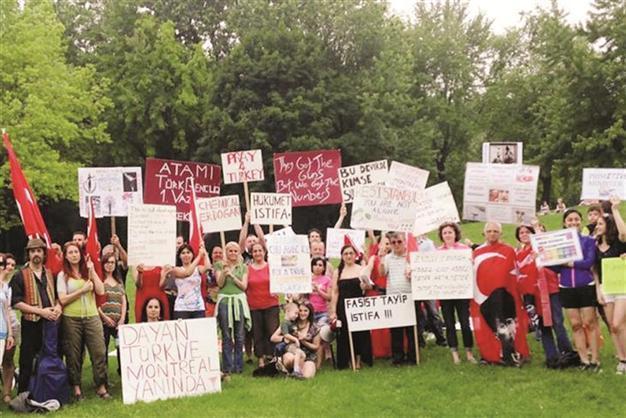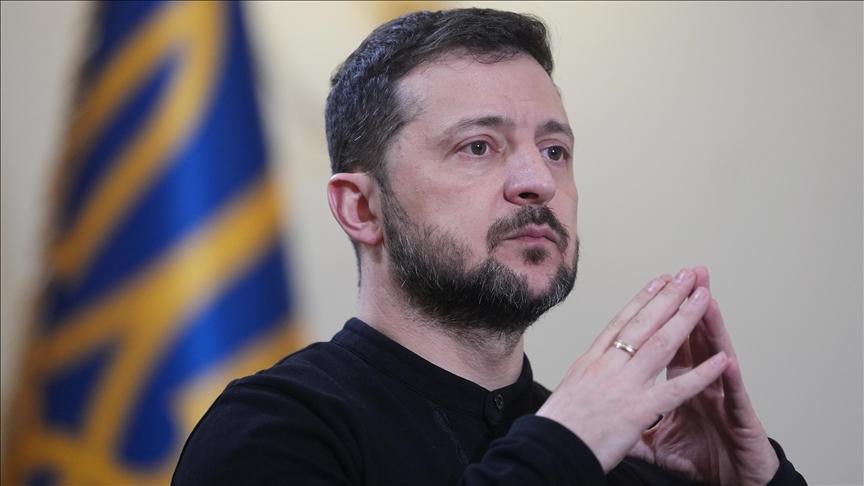Gezi protests transform into nationwide forums
Emrah GÜLER

For all their diversity and steering the discussion around it: Now that the people have voiced their concerns in an unprecedented way, what comes next?
“If you investigate the Occupy movements and you ask them what are their demands, they are reticent to answer and rightly so, because they are essentially crafting a point of view from many disparate sources,” the powerhouse name for political criticism and modern philosophy Noam Chomsky has said.He was speaking in an interview in January 2012 with New York University student Edward Radzivilovskiy about the future of the Occupy movements, which kicked off with Occupy Wall Street in New York’s Zuccotti Park before spreading globally. The spirit of the movement, tactics and tools were visible in last month’s protests in Turkey. Chomsky cited “the creation of cooperative communities” as one of its most striking features, “something very much lacking in an atomized, disintegrated society.”
The cooperative communities Chomsky was referring to are the general assemblies that carry out extensive discussions, kitchens, libraries, support systems, and so on, continuing to this day, in the hope of creating an alternative participatory democracy to fight the unequal distribution of wealth and power in America and elsewhere.
Speaking assemblies have also become the next stage in the protests that began with the Gezi Park protests against a development project in Istanbul’s Taksim Square, which turned into nationwide protests against the increasingly autocratic regime of Prime Minister Recep Tayyip Erdoğan and the ruling Justice and Development Party (AKP). The speaking assemblies in Turkey are called “forums.” They are held regularly in as many as 50 parks in Istanbul, and a total of around 100 in 20 cities across Turkey, spreading to Turkish communities in New York, London and various cities in Germany, where a large number of Turks live.
Taking some of the communication models from the Occupy assemblies across the world, such as the hand signals that mean “agree,” “disagree,” and “wrap-up,” but its simple structure from the consensus-based decision making assemblies of Ancient Greece, the forums across Turkey are much more than mere discussion platforms. They are examples of participatory democracies on small scales, hoping to make their transition to a much-needed mature democracy on a national level.
Still, it’s not such a small scale in some cases: Istanbul’s Abbasağa and Yoğurtçu Parks welcome over 1,000 participants on some nights. How are these assemblies facilitated in so many places, with people who have so much to say in the heat of the biggest mass protests Turkey has seen? “I have been to four different parks, including Abbasağa, which is always crowded,” says Kemal Özgen, a university student and “a pure-bred activist,” speaking of the park that was home to the first forum in mid-June.
The facilitators
“The facilitators in all of the parks have continually impressed me. They make sure the speakers don’t enjoy the microphones too much, skillfully wrapping up the speeches that go on too long,” said Özgen. “They also make sure the speakers don’t stray from the subject, rant about politics, talk about their ideologies, or talk about certain groups as ‘others.’”
Is there a standard structure shared by all of the forums? Yes and no. “While the subjects of the discussions change, the methods are basically the same,” said Levent İnce, a graphic designer who has been in Ankara’s Kuğulu Park pretty much the whole time since the eruption of the protests more than a month ago. The methods he is referring to are the facilitators, the limited time for speakers, the hand signals, and so on.
“Like many of the forums, Kuğulu Park generally has one or two guests for the opening slot to inform participants on specific issues,” said İnce. Laws and legislations pertaining to the protests, women’s role in the protests, and the history of civil disobedience in Turkey are some of the topics of these forums.
“Following the informatory session, we always have an open session where people are free to talk about any subject they wish to talk about. The forums in Kuğulu Park have a relatively manageable number of participants. However, for the two parks in Istanbul which see huge numbers of participants, it is impossible to hear everyone who is willing to talk. They use other methods like micro forums, or compile suggestions for topics before the open session,” İnce added.
Diversity at the park
For all their diversity, all of the forums have been asking one major question, and steering the discussion around it: Now that the people have voiced their concerns in an unprecedented way, what comes next? The strategies for next year’s local elections, legal actions to be taken for those detained, injured, or worse, and how to turn this mass awakening into something around which more action can be taken are some of the popular topics of discussion. Most of the participants are willing to contribute to this brand new form of participatory democracy. Many of them take the microphones, but there are also boxes in some of the parks for those too nervous, who can write down their opinions and leave them to be included in the notes shared later through various websites and Facebook pages.
Many first time speakers are ready to soapbox, ready to steer from the subject. In one of the forums, one older man talked about how the labor movement had been decimated. In another one, a retired teacher shared her disappointment at being detained, noting sadly that some of her students might well have joined the police force. In her blog, “Reflections and Illusions,” Burcu Çağlayan wrote about the feelings of the crowd at a forum she attended in Ankara. “A man took the microphone and said, ‘I’m a worker.’ In an instant, he was one of us. He just wanted to let out what was bottling up inside of him, to let it out to a crowd he didn’t know. He talked about his income, and how he was making ends meet,” wrote Çağlayan. “After a couple of minutes, he wrapped up and thanked everyone gently. We were like a big family in the park, neutralized under the trees. We had already become one.” More impatient and cynical people have been asking what will come of these forums. Well, at the very least, they will have spoken.
















